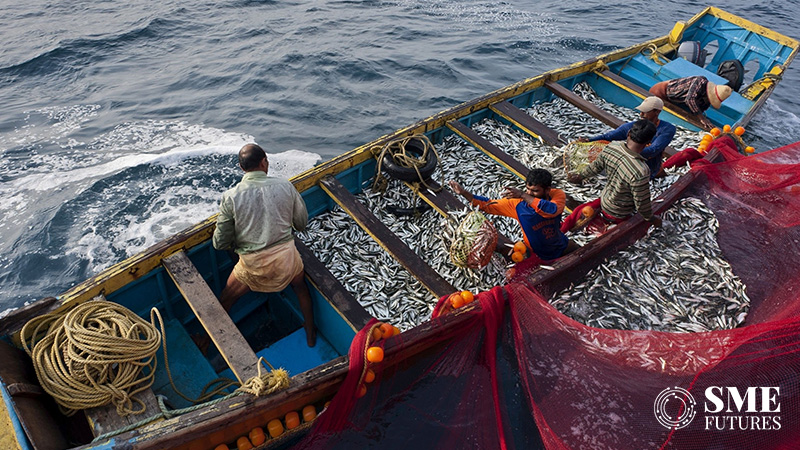India is working on maximising the net revenue from fisheries through ‘value conservation, value capture and value creation’, said Jatindra Nath Swain, Secretary to Department of Fisheries, Union Government. According to him, this will ensure not only a better economics for the sector but contribute to ecological sustainability also, he said.
He was speaking after inaugurating a five-day international symposium on innovations in fishing technologies for sustainable and resilient fisheries here. The government is also committed to maintain a balance between improving the fishing performance and minimising its negative impacts, he said.
“Policies and legal provisions are primarily focused on low-impact fishing. Pressure of fish stocks in near-shore waters have made us think of improving the situation by exploring resources in the high-seas”, adds Jatindra Nath Swain.
Also Read: UPI transactions registered in FY 21-22 were 45 bn, show 8 times growth in last 3 yrs
The top fisheries official also said that appropriate technologies are crucial in maintaining sustainability in the marine fisheries sector of the country, adding that improved gear management practices would help protect and promote the interest of small-scale fisheries sector, reduce by-catch, manage ghost fishing and mitigate climate change.
Assimilation of latest technologies for fuel efficiency like in the case of dual-fuel hybrid fishing vessel would bring down fishing cost, a need of the hour for small-scale fishers in India, Swain said, adding that choice of fishing technology plays a crucial role in determining the outcome of the fishing.
“The country is moving towards the Blue Economy approach focusing on diversifying ocean uses and conserving ecosystem health. However, technological and policy innovations such as deepsea fishing, mariculture, sea ranching and deployment of artificial reefs are necessary to achieve this”, the Secretary said.
The symposium is being organised by the Bay of Bengal Programme Inter-Governmental Organisation (BOBP-IGO), the National Fisheries Development Board (NFDB), the Indian Council of Agricultural Research (ICAR) and national fisheries institutions on the occasion of the 23rd annual meeting of the International Council for the Exploration of the Sea (ICES) -FAO Joint Working Group on Fishing Technology and Fish Behaviour (ICES-FAO WGFTFB).
Also Read: Budget 2023: Make AI in India, a move welcomed by all
Attended by around 250 participants from 30 countries, the 5-day event will witness 80+ technical sessions on various themes such as active fishing gear, passive fishing gear, ghost fishing nets, etc. A dialogue on the development of a regional marine fisheries platform for the Bay of Bengal region will be held on Tuesday on the side-line of the symposium. It will discuss the formation of a regional network to address issues such as climate change, marine pollution, overfishing and habitat degradation, and to strengthen the Blue Economy in the region. A brainstorming session on artificial reefs and sea ranching will also be held on Tuesday











